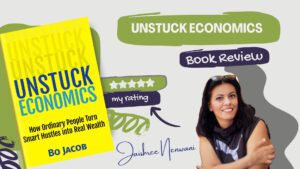“There’s no path to happiness. Happiness is the path.” – Buddha
In a world where happiness can sometimes feel like a distant dream, it’s comforting to know that there are scientifically proven ways to cultivate more joy in our lives. Drawing from the wealth of research in positive psychology and the science of happiness, here are 9 simple yet effective steps to unlock lasting happiness.
9 Steps to Happiness – Backed by Science of Happiness


1. Gratitude: The Secret Sauce of Happiness
When we take a moment each day to reflect on the things we’re grateful for, we’re training our brains to focus on the positive. Studies in positive psychology have shown that practicing gratitude can lead to increased feelings of happiness and overall well-being. Try keeping a gratitude journal or simply pausing to appreciate the small joys in life.
2. Connections: Nurture Your Relationships
Human beings are social creatures, and meaningful connections with others play a crucial role in our happiness. Research in the science of happiness emphasizes the importance of investing in our social connections, whether it’s spending quality time with friends, bonding with family members, or building supportive relationships in our communities.
3. Kindness: The Ripple Effect of Good Deeds
Acts of kindness not only benefit the recipient but also have a profound impact on the giver’s happiness. Research in positive psychology has shown that spreading kindness creates a positive feedback loop of happiness and well-being. Whether it’s offering a helping hand to a neighbor or volunteering for a cause we care about, practicing kindness can bring immense joy.
4. Purpose: Finding Meaning in Life
Having a sense of purpose and direction gives our lives meaning and infuses our daily activities with a deeper sense of fulfillment. Studies in positive psychology highlight the importance of identifying our purpose, whether it’s pursuing a passion, contributing to a cause we believe in, or striving for personal growth and development.


5. Health: Nurture Your Body and Mind
Physical health and mental well-being are closely intertwined with our happiness. Research in the science of happiness emphasizes the importance of making healthy lifestyle choices, such as eating nutritious foods, getting regular exercise, prioritizing sleep, and practicing stress management techniques, to boost our mood and overall well-being.
6. Mindfulness: Cultivating Present-Moment Awareness and Stop Dwelling on the Past
Focusing too much on the past can hinder your happiness and success in the present. Regardless of whether your past experiences were positive or negative, they can distract you from the current moment. Engaging in activities like mindfulness can enhance your happiness by helping you stay grounded in the present and connected with those around you. Research has shown that mindfulness can also significantly reduce stress, anxiety, and depression in adults.
Mindfulness practices, such as meditation, deep breathing, and mindful movement, can help us become more aware of our thoughts, feelings, and sensations in the present moment. Research in positive psychology has shown that practicing mindfulness can reduce stress, enhance self-awareness, and cultivate a greater sense of peace and contentment.
7. Drop Perfectionism – Choose a “Good Enough” Mindset
Adopt the mindset that “good enough is great.” By doing so, you’ll save time and effort, and avoid self-criticism, since you’re intentionally following this new motto. Remind yourself, “I know I could do more with extra time and effort, but it’s not necessary.” Consider that 70-page report you created when a 10-page one would have sufficed. Being kinder to yourself in this way will enhance your happiness.
8. Goals: Setting Your Sights on Success
Setting and pursuing meaningful goals gives our lives direction and purpose. Research in the science of happiness underscores the importance of having clear objectives to work towards, whether they’re short-term goals or long-term aspirations, to foster a sense of motivation, accomplishment, and satisfaction.


9. Flow: Getting Lost in the Moment
Flow refers to a state of deep immersion and absorption in an activity, where we lose track of time and become fully engaged in the present moment. Research in positive psychology has shown that experiencing flow can bring a profound sense of joy, fulfillment, and accomplishment, whether it’s pursuing a favorite hobby, engaging in creative work, or participating in a challenging sport.
Mihaly Csikszentmihalyi, the author of Flow, explains that when you engage in an activity you enjoy, one that challenges you and helps you develop your skills, you enter a state of flow. In this state, you are fully immersed in the present moment, often losing track of time. This experience is not only enjoyable but also enhances your well-being and happiness. So, find your flow, right away!
Wrapping Up on 9 Steps to Happiness – Backed by Science of Happiness
Happiness isn’t readymade! We need to create it for ourselves. And it may not be a constant state, but by nurturing these habits and perspectives, we can cultivate a greater sense of well-being and resilience to navigate life’s inevitable ups and downs with grace and optimism.
Are you happy?






6 responses to “9 Steps to Happiness – Backed by Science of Happiness”
Love all of these but I love point number 9 especially. Flow. Sounds like an Eminem song. Lose yourself in the moment. 🙂 But it is so true. When you are so absolutely present, it makes all the difference. And of course gratitude and being of service. Learning to be joyful, even when things are not perfect is so important. Great article. Thank you.
I love all these science backed steps to happiness. There are so many great steps to implement into my daily life. I especially like the suggestion to find meaning in life for a sense of purpose and direction.
For me dropping the perfectionism is most challenging. I am my biggest critique. Trying my best to overcome this by focusing/getting lost in the moment. Thanks for sharing these points. Saving for reference.
I love this post! You’ve brought to the table what a person can do to find happiness without bogging us down with superfluous information.
I’m looking up Flow, I hadn’t read that.
Love these tips especially the “stop dwelling on the past”, easier said than done, but true nonetheless. Great article, thanks for sharing!
I would say dropping perfectionism is key for me. It is something quite difficult for me to let go of but it must be done! Great read!